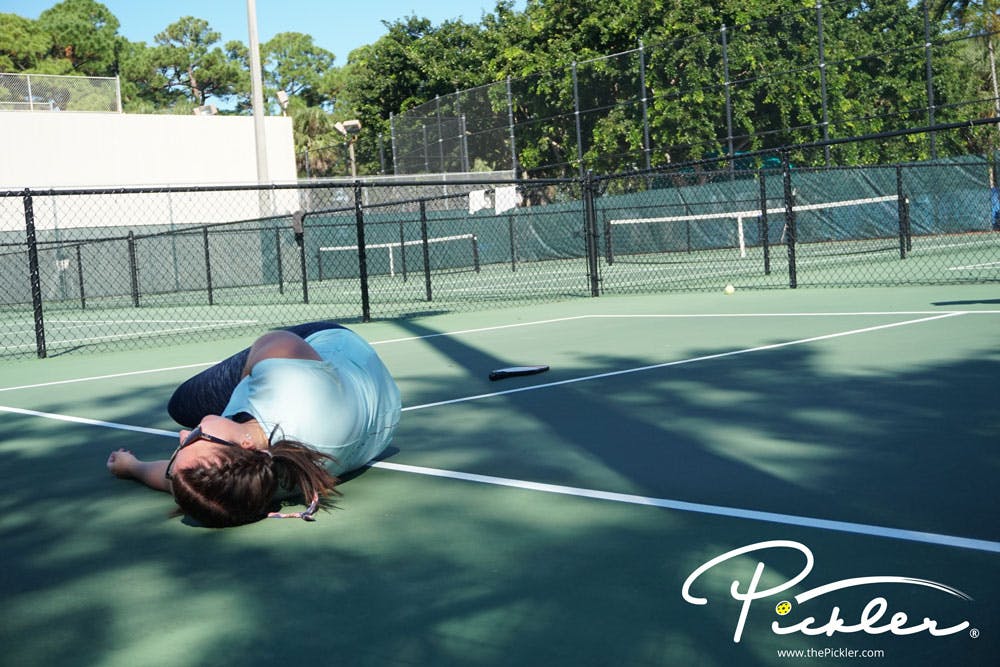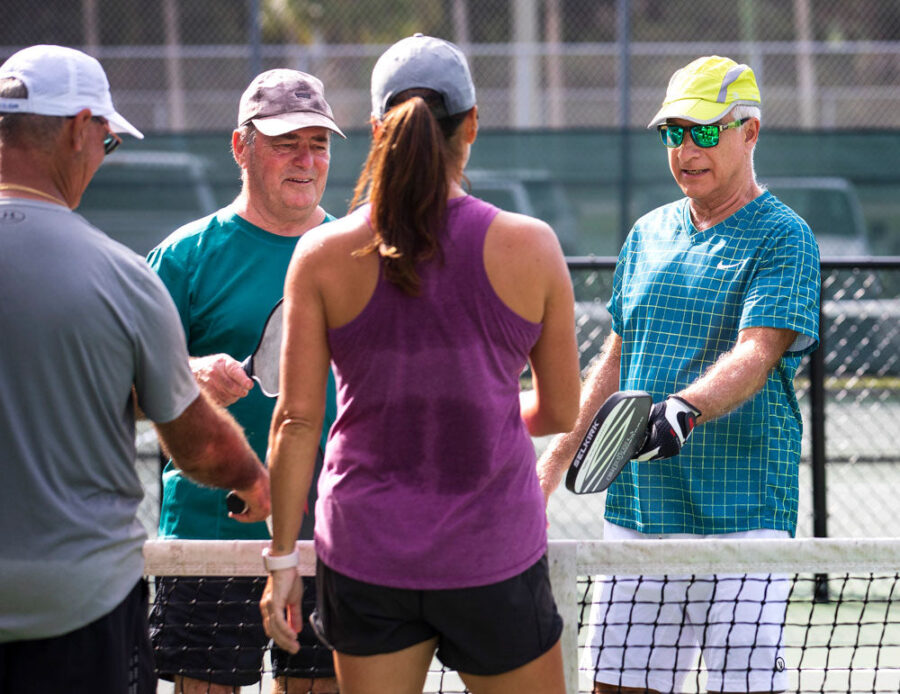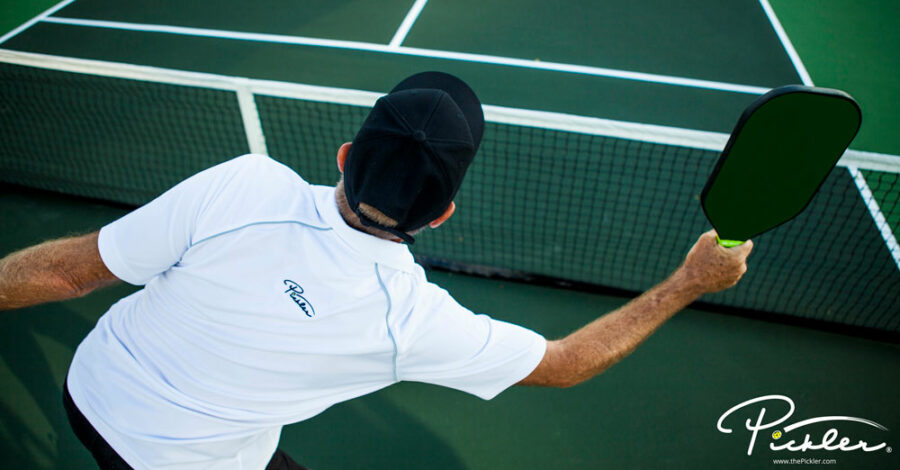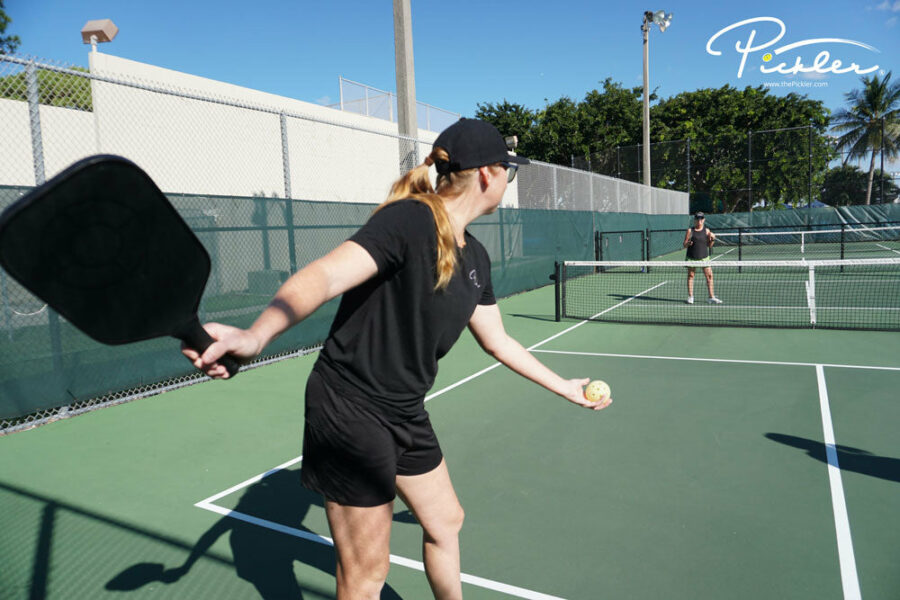So, the other day, my dentist and I started talking about pickleball.
Actually, you can replace the word “dentist” in that sentence with just about anybody else I run into, and it would be true.
I find myself talking about pickleball to everybody these days. I’m not proud of this. I just can’t help myself. If you hear me explaining the two-bounce rule, I recommend that you run away.
OK, where was I? Oh, yeah. My dentist. He’s got his hands in my mouth while explaining to me that he would like to play pickleball but he doesn’t because “pickleball is an injury sport.”
And he’s not the first non-player to make this observation. It’s as if there’s a secret instruction manual out there that advises people that if they want to stop pickleball evangelism in its tracks, just mention that pickleball is an “injury sport.”
Oh, this frosts me, to the point where I am tempted to hold out my hand like a stop sign and … well, not my right hand. Not since I fell while backpedaling for a lob, and ended up on my keister with my extended right arm breaking my fall and spraining my wrist.
(I know. I know. Don’t backpedal. Turn and take a sidestep. I know. But I backpedaled like a fool.)
I’m not counting that as a wrist injury though, because it happened to my non-paddle wrist, and I can still toss a ball with my sore-wristed hand well enough to do a serve.
OK, where was I? Oh, yeah. More ice on my wrist. No, not that. My dentist. Oh, yeah, my dentist is telling me that he doesn’t want to tear his Achilles tendon while playing pickleball.
“Rggg mmgr prghgh fnghr …” I told him. “Rfdd mdgr pdkhh nngrll …”
He had his hands in my mouth, remember? So I’m not sure he understood my garbled defense.
It was that when you get to a certain age – and I don’t know what that age is, but I’m certainly well beyond it – you can get hurt doing just about anything.
At this point, I wouldn’t doubt that changing my mind too fast can lead to an injury. Watching Netflix too.
Seriously. I read a story about a woman who was watching so much Netflix that when she got up from her couch to get something out of the refrigerator, her foot had gone asleep, and she fell, spraining her ankle.
And yet, we still watch Ozark, Tiger King, and all six Jim Gaffigan comedy specials.
In other non-pickleball-related injury news, every year about 235,000 people over the age of 15 end up in the emergency room due to an injury experienced in the bathroom, and 14 percent of those people are hospitalized, according to the Centers for Disease Control.
And yet, you never hear anybody advocating that we should avoid showering and go back to outhouses instead of flush toilets.
You’d be surprised how many people get hurt doing ordinary things. The World Health Organization classifies injuries noted in health insurance claims. It’s a great resource for bizarre injuries.
I’ll bet you didn’t know that in the year 2016, there were 17,200 people who were injured by walking into a wall, and another 400 who walked into a lamppost.
So when it comes to pickleball injuries, I find myself putting them in a larger context.
The crucial difference between getting injured by walking into a wall and getting injured by playing pickleball is that you don’t miss not walking into more walls as you recover from your injury.
But you do miss pickleball too much to stop.
I know this, because I spoke with Karen Butera, a 64-year-old retired lawyer living in Orlando.
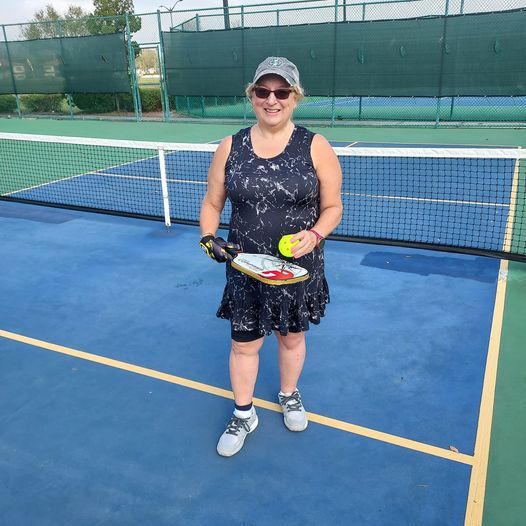
Butera found pickleball six years ago after playing competitive racquetball. She became a USAPA Pickleball Ambassador and an everyday player.
Over time, she developed a problem with her left knee.
It was a bone-on-bone situation, she said.
“I probably waited too long,” she said. “By the time I decided to do something, my options were surgery or a wheelchair.”
She chose surgery. The doctor reminded her it would be difficult to recover, and asked her why she wanted to do it.
“I want to visit my grandchildren and be able to play on the floor with them, and I want to play pickleball,” she said.
Butera got her knee replaced on January 12th, and began taking her physical therapy very seriously while also doing lap swimming and walking 5,000 steps a day without a cane or a walker.
“Everybody’s body heals at a different rate,” she said. “Don’t rush things. It takes a long time for the body to heal, and the first six weeks are h-e-l-l.”
She recommends doing lots of pre-op physical therapy and scheduling the surgery quickly, because the wait time can be six months long. She credits her gradual recovery to her desire to get back on the court and her “pickleball family.”
“They did a meal train for me,” she said. “I had 20 days of meals.”
Last week, she stepped back on the court again with a paddle and ball in her hand for the first time after her surgery.
“My heart is so happy,” she posted online.
No games at first.
“Low and slow, like good barbecue,” she said. “I’m just doing serves and dinks and blocks. Just getting my muscle memory back.
“It’s a full-time job recovering from this.”
But it’s worth it.
“I won’t go back to playing every day,” she said. “I’ll play every other day or every third day.”
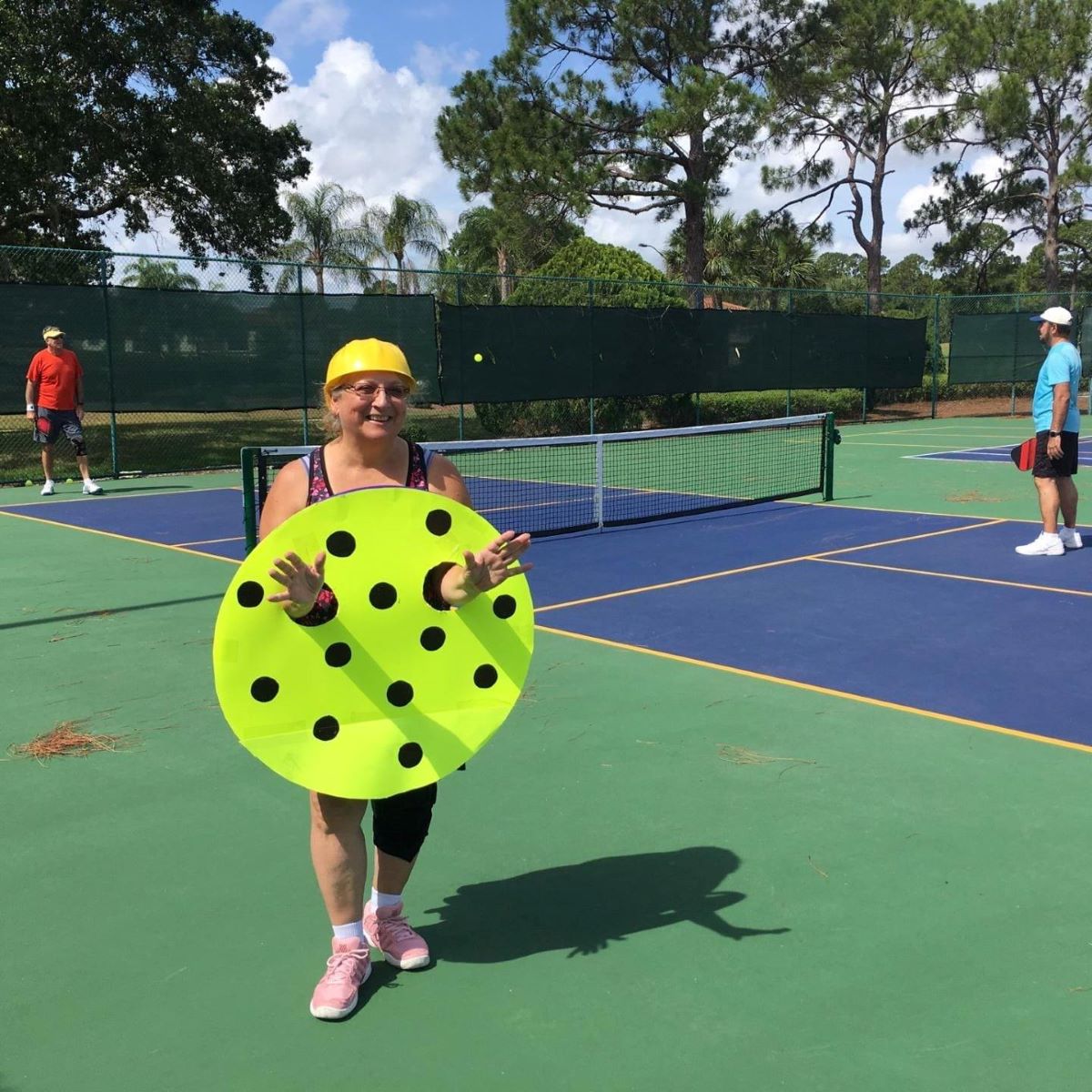
MURMURS FROM THE LOSERS’ BRACKET
Read past editions of Murmurs from the Losers’ Bracket, including:
- The Ozempic Ad
- Ball On Court? Maybe Not
- The PPA, the APP and Monty Python
- Time to Get Help at Bangers Anonymous
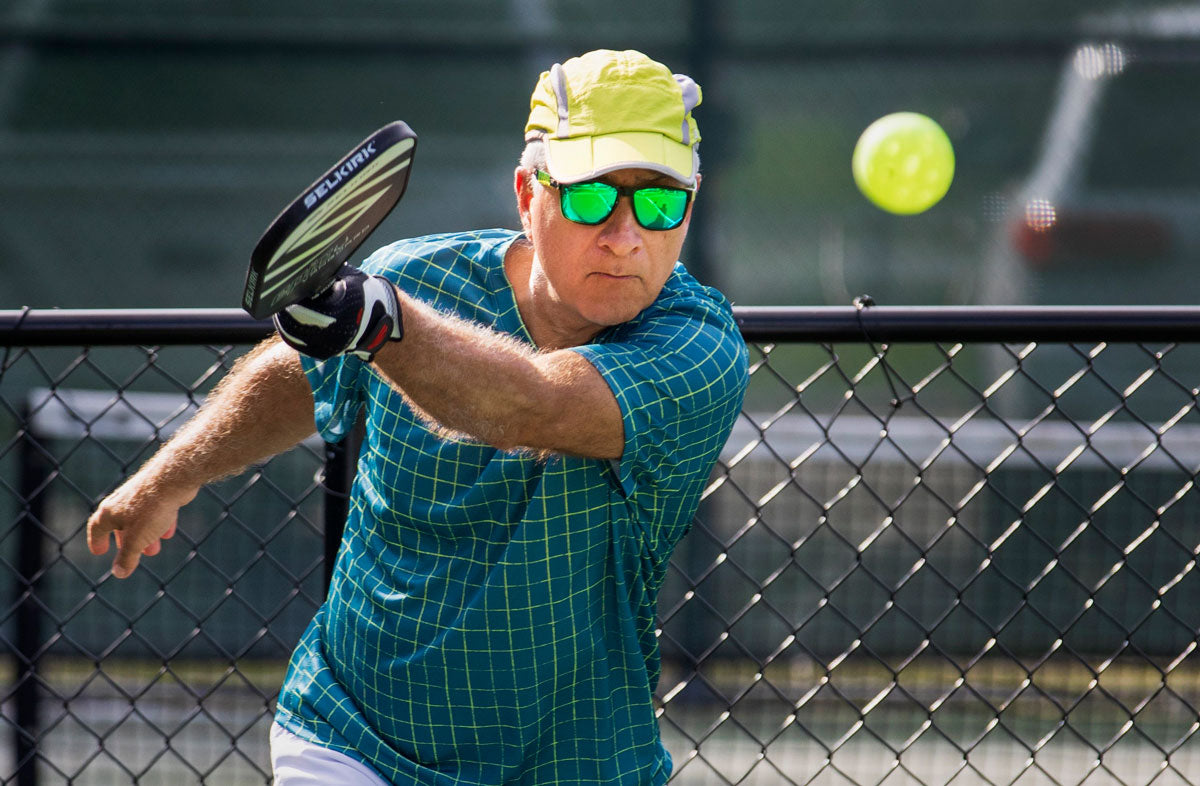
Frank Cerabino is a long-time columnist for the Palm Beach Post in Florida, a pickleball addict like the rest of us, and a newly published author. Check out Frank’s newly released book, I Dink, Therefore I Am: Coming to Grips with My Pickleball Addiction (available on Amazon and a great read (or gift!) for any pickleball player), for pickleball tips and laughs!

